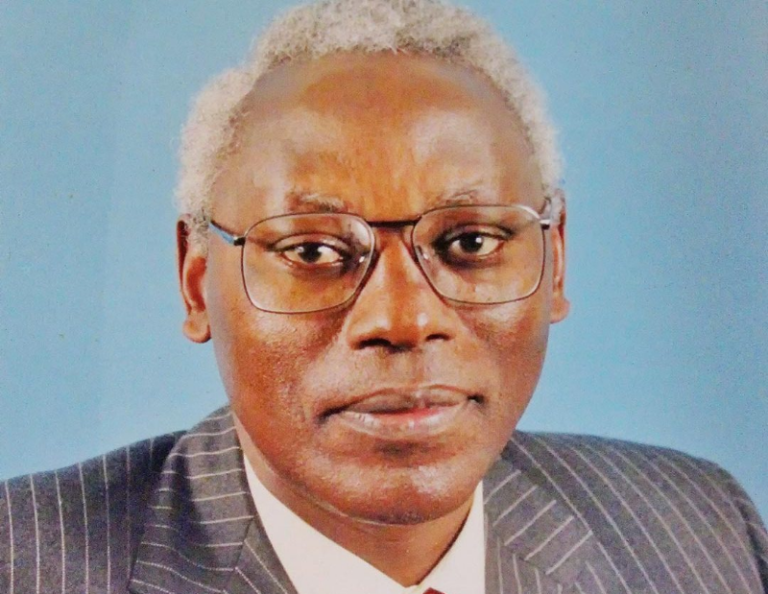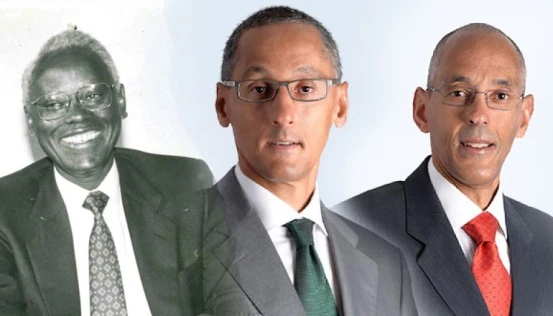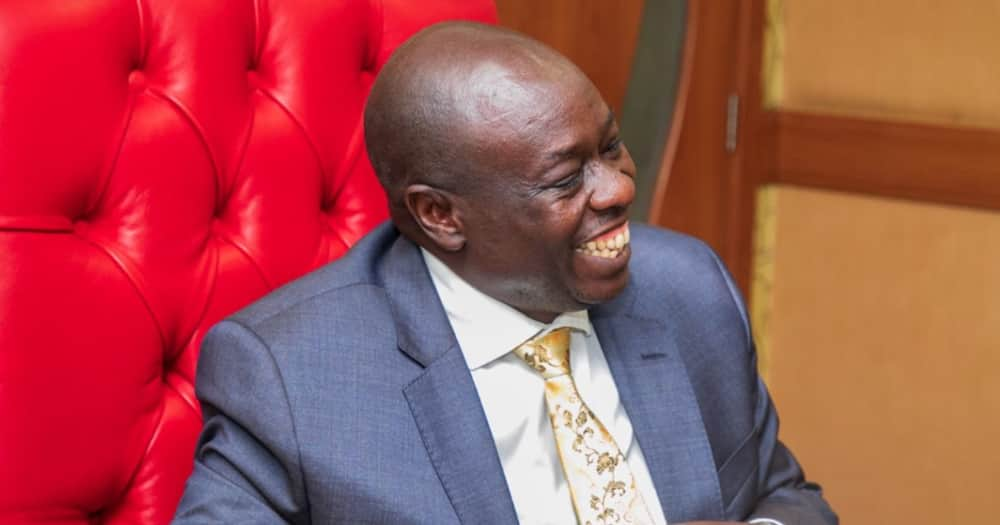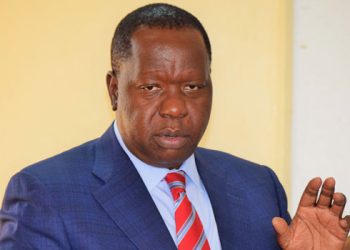Philip Ndegwa was a Kenyan economist, entrepreneur, former Governor of the Central Bank of Kenya, and patriarch of one of the country’s wealthiest families, according to Wikipedia.
He became the second governor of Central Bank of Kenya after Duncan Ndegwa in 1982.
Mr Ndegwa’s education
Mr. Ndegwa studied at Alliance High School, Makerere University College, and Harvard University. He joined the Civil Service in 1965 and become a government advisor on economic issues and planning.
Career
He served as a Permanent Secretary in the Ministries of Finance, Agriculture, and Economic Planning. In November 1987 Mr. Ndegwa was appointed executive chairman of the Kenya Commercial Bank, and, in December 1982 he became the Governor of the Central Bank of Kenya.
He also served as the chairman for the National Bank of Kenya, the Agricultural Finance Corporation, and the Kenyan Pipeline Company.

In 1987 the UN Secretary General appointed Mr. Ndegwa to a panel of international economic experts charged with analyzing Africa’s debt crisis and proposing policies to address it. Mr. Ndegwa also worked with the UN Environmental Programme and rose to become its assistant director.
In addition to assuming the role of Chairman of Kenyan Airways in April 1991, Mr. Ndegwa served as Chairman of the Kenyan Revenue Authority, First Chartered Securities Limited, The Society for International Development, Kenya Chapter, the Insurance Company of East Africa (ICEA) and the African Mercantile Bank.
Mr. Ndegwa played a crucial role in the restructuring and privatization of Kenya Airways. He lived just long enough to see Kenya Airways successfully attract a strategic investor, a key step in his plan to rebuild Kenya Airways as a viable, commercial enterprise.
Mr. Ndegwa’s Books
Mr. Ndegwa wrote a number of books on economics and politics in Kenya and Africa. His last book, coauthored with Mr. Reginald Herbold Green and published in 1994, is Africa to 2000: Imperative Political and Economic Agenda.
This book calls for depoliticizing the allocation of development resources in Kenya, eliminating high level corruption, and allowing greater freedom for the media.
He was a research fellow and lecturer in economics at Makerere University and authored leading works on economic trends in Africa.
Investments
Through First Chartered Securities, an indigenous investment firm created in 1974 with 20 civil employees and business moguls as stockholders, he amassed one of Kenya’s most solid fortunes.
Before excursions into reinsurance, banking, agriculture, logistics, and real estate, Ndegwa’s acquisition vehicle landed the Insurance Company of East Africa (now ICEA Lion with a 100 percent shareholding to date).
Controlling stakes in NIC Bank and Ambank, three tea estates and tea processing factories, including the world-renowned Karirana Estates, milling and beverage manufacturing, and the Riverside Park in Westlands, which is managed by Knight Frank Kenya with First Chartered Securities as partners, and three tea estates and tea processing factories, including the world-renowned Karirana Estates bought in 1986 after acquisition of MacKenzie Kenya Ltd.
The property portfolio was worth $100 million (Sh9 billion by 1999) — through its insurance arm, alone! Before selling its interests in Inchcape Shipping (including a ‘garage’ for ships), the Ndegwas operated Africa’s largest dry shipping dock between Cairo and Cape Town!
Banking a billion
In the year 2000, the Nairobi offices of the Economic Review magazine witnessed exceptional enthusiasm.
Forbes magazine in America had received a call from some financial crack shooter.
Forbes was developing a list of Kenyans whose old money war chest saw them chant perpetual financial Hosannas through private hustle.
Forbes included two names: former Central Bank of Kenya governor Philip Ndegwa and politician Kenneth Matiba, who was a billionaire in real money before his wealth sank in the sand.
Forbes wanted to know if he was the first Kenyan to reach the billion-dollar mark.
Death
Philip Ndegwa died on 7 January, 1996. President Moi expressed his sorrow and shock, and sent condolences to Ndegwa’s family. Finance Minister Musalia Mudavadi noted, “The late Ndegwa leaves behind an impeccable record of public service and particularly in the economic management of our nation.”

















